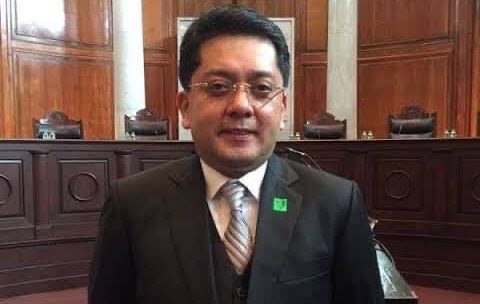
Comelec Commissioner George Garcia. (INQUIRER FILE PHOTO)
MANILA, Philippines — The Commission on Elections (Comelec) has exempted the fuel subsidy program for public utility vehicle (PUV) drivers and operators from the election spending ban, but set “strict” conditions for its implementation to ensure the financial aid will go to the rightful beneficiaries.
Commissioner George Garcia on Wednesday said the Land Transportation Franchising and Regulatory Board (LTFRB) can resume the distribution of the cash aid to drivers and operators of buses, jeepneys and tricycles once the Comelec resolution is out either this Thursday or Friday.
“The grant of the petition of the LTFRB will be subject to strict implementation of the program by the submission of information on how the project will be implemented, the parameters of the implementation,” Garcia said in a briefing after their weekly policy meeting.
Sen. Grace Poe, chair of the Senate public services committee, on Monday called on the Comelec to act swiftly on the LTFRB petition, saying “hunger simply cannot wait.”
Before the election ban took effect on March 25, the LTFRB had distributed P6,500 in fuel aid to 110,287 jeepney and bus drivers out of 264,578 qualified beneficiaries. At least 67,447 applications for subsidies are still being reviewed by the board, including those filed by 22,932 taxi drivers.
The government had earmarked P3 billion in fuel subsidy for the PUV drivers reeling from runaway fuel price hikes exacerbated by the ongoing Ukraine-Russia conflict.
Public spending on public works and other projects is banned during the official election period to prevent politicians from using public funds for their campaign.
All national agencies and local government units need to get an exemption from the Comelec to continue their projects during the period of the spending ban which will last until May 8, the eve of the national elections.
Well spent
Garcia said the Comelec also required the LTFRB and the implementing agencies such as the Department of Agriculture (DA) and the Department of Social Welfare and Development to specify the target beneficiaries and how they may apply for the assistance.
The agencies could immediately implement the fuel subsidy program but they needed to wait for the Comelec resolution, which will contain the conditions for its implementation, he added.
The commissioner said the LTFRB merely allocates the amount of financial assistance that will be distributed by each of the implementing departments.
“We have to monitor how the department is implementing the fuel subsidy because the commission wants (to make sure) that the money is well spent and in accordance with the policy of the President (and) with the plan of action on how the project should be implemented,” he added.
Another appeal
The DA said it would ask the Comelec on Thursday to reconsider its denial of the department’s earlier petition for a spending ban exemption concerning the fuel subsidy for corn farmers and fishers.
“I have signed the documents. It will be filed tomorrow,’’ Agriculture Secretary William Dar said in a text message on Wednesday.
The department began distributing P3,000 in fuel aid to corn farmers and fishers in Leyte and Zambales provinces on March 17 until the ban took effect. It could not say how many have received the subsidy so far.
The DA had earmarked P500 million in aid for some 158,730 corn farmers and fishers. The government is set to release this month an additional P600 million for a new set of beneficiaries from the same sector.
“Now, agricultural producers are affected because of higher petrol prices. Prices of fertilizers, feeds and other farm inputs have been increasing,” Dar told reporters on Tuesday. “We need to produce more food at every opportunity.”
—WITH A REPORT FROM JORDEENE B. LAGARE
RELATED STORY
PUV drivers seek easier access once subsidy release resumes